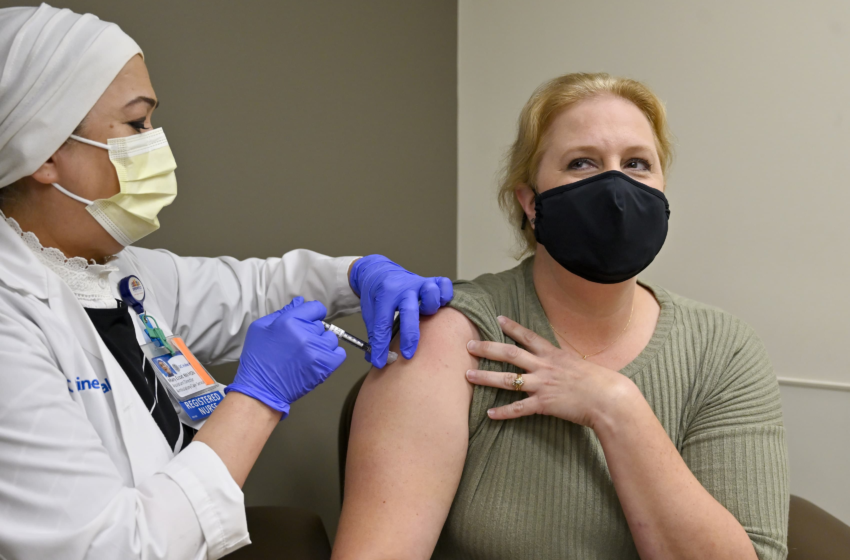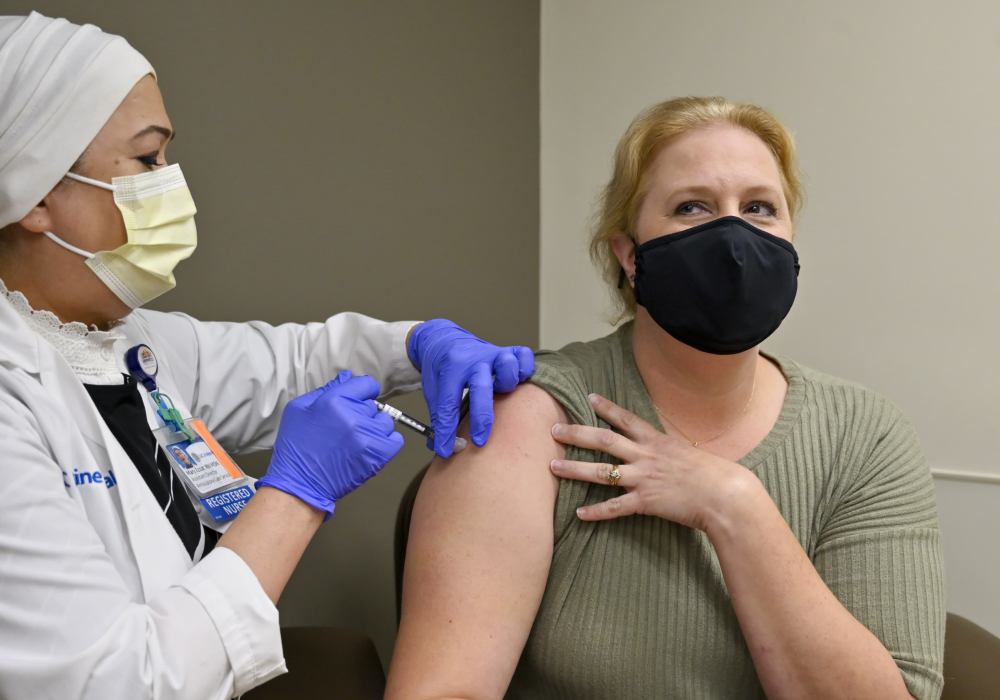Nurse Mary Ezzat administers a Pfizer COVID-19 booster shot to Jessica M. at UCI Medical Center in Orange, CA, on Thursday, August 19, 2021.
Jeff Gritchen | MediaNews Group | Orange County Register via Getty Images
South African scientists say the Covid omicron variant significantly reduces antibodies generated by Pfizer and BioNTech’s vaccine, although people who have recovered from the virus and received a booster shot will likely have more protection from severe disease, according to a small preliminary study released Tuesday.
Prof. Alex Sigal with the Africa Health Research Institute and a team of scientists tested blood samples of 12 people who had previously been vaccinated with the Pfizer/BioNTech vaccine. They were looking specifically at how well antibodies generated by the vaccine can neutralize the new variant — meaning block its ability to infect cells.
They found a 41-fold drop in the ability of the antibodies to neutralize the omicron variant compared with the original virus, a dramatic reduction from its performance against the original ancestral strain as well as other variants, according to a preprint of the study that hasn’t yet been peer-reviewed. Vaccine-induced antibodies dropped threefold in their ability to neutralize the earlier beta variant that previously dominated South Africa, suggesting omicron is much better at evading protection.
“The results we present here with Omicron show much more extensive escape” than the beta variant, researchers wrote. “Previous infection, followed by vaccination or booster is likely to increase the neutralization level and likely confer protection from severe disease in Omicron infection.”
The study tested 14 plasma samples from 12 vaccinated people, 6 of whom were previously infected. Scientists have been making their Covid research available prior to going through the extensive peer-review process because of the urgency of the pandemic.
Dr. Paul Offit, professor of pediatrics at the Division of Infectious Disease at Children’s Hospital of Philadelphia, told CNBC the data suggests fully vaccinated people may face a higher risk of mild infection from omicron compared to the past variants.
“I think that there’s still going to be protection against serious illness,” Offit said. “I think with either vaccination or natural infection or both. You’re going to be protected against serious illness.”
Pfizer CEO Albert Bourla said earlier Tuesday the company can develop a vaccine that specifically targets omicron by March 2022 if needed. Bourla said it will take a few weeks to get more definitive data on whether the current vaccines provide enough protection against the variant.
The Pfizer CEO had previously told CNBC that the protection provided by the company’s two-dose vaccine would likely decline some in the face of omicron.
The South African scientists also found that omicron attaches to the same receptor, known as ACE2, to infect human lung cells that previous variants used.
Omicron, first identified in southern Africa, has dozens of mutations that generally make viruses more contagious. White House chief medical advisor Dr. Anthony Fauci told reporters during a White House Covid briefing Tuesday that data from South Africa on new omicron infections “clearly argues towards a high degree of transmissibility.”
Fauci said Tuesday it is too early to draw conclusions about whether omicron causes more severe disease, though he said over the weekend that early reports were encouraging.
The South African Medical Research Council, in a report published Saturday, found that most patients admitted to a hospital in Pretoria who had Covid did not need supplemental oxygen, as was common in previous infection waves. Many patients in the Covid wards were actually hospitalized for other reasons, according to the report.
Pfizer’s CEO said earlier Tuesday that a variant that spreads fast but causes milder symptoms is not necessarily good news.
“I don’t think it’s good news to have something that spreads fast,” Bourla told The Wall Street Journal during an interview at the paper’s CEO Council Summit. “Spreads fast means it will be in billions of people and another mutation may come. You don’t want that.”
— CNBC’s Meg Tirrell contributed to this report.












